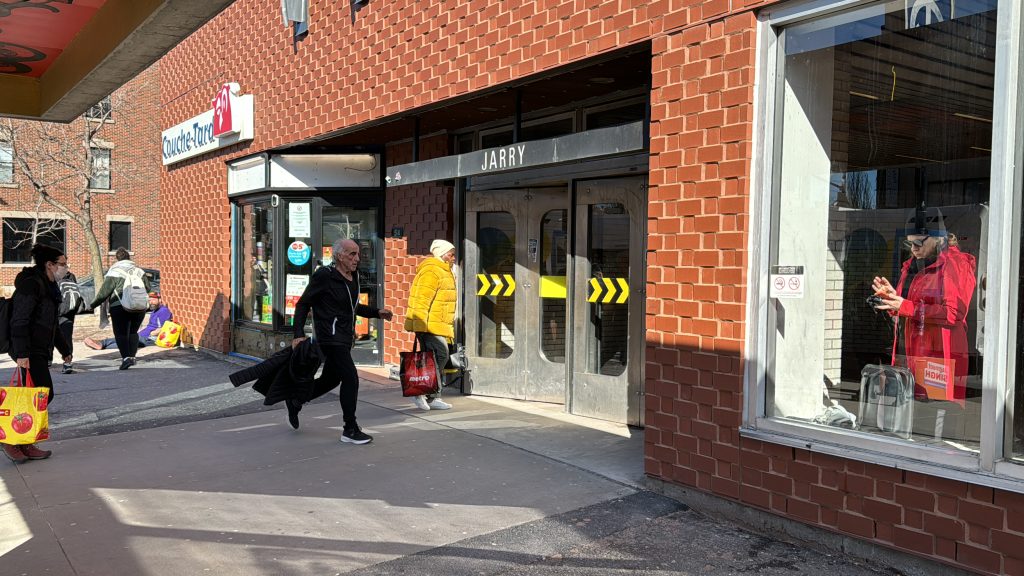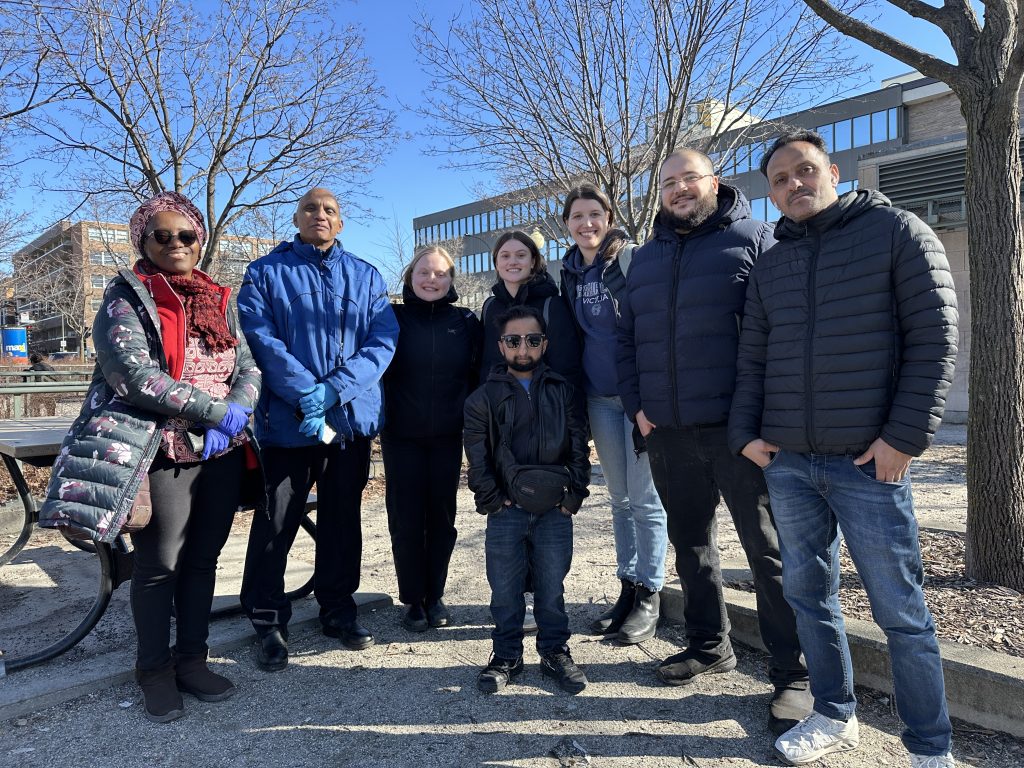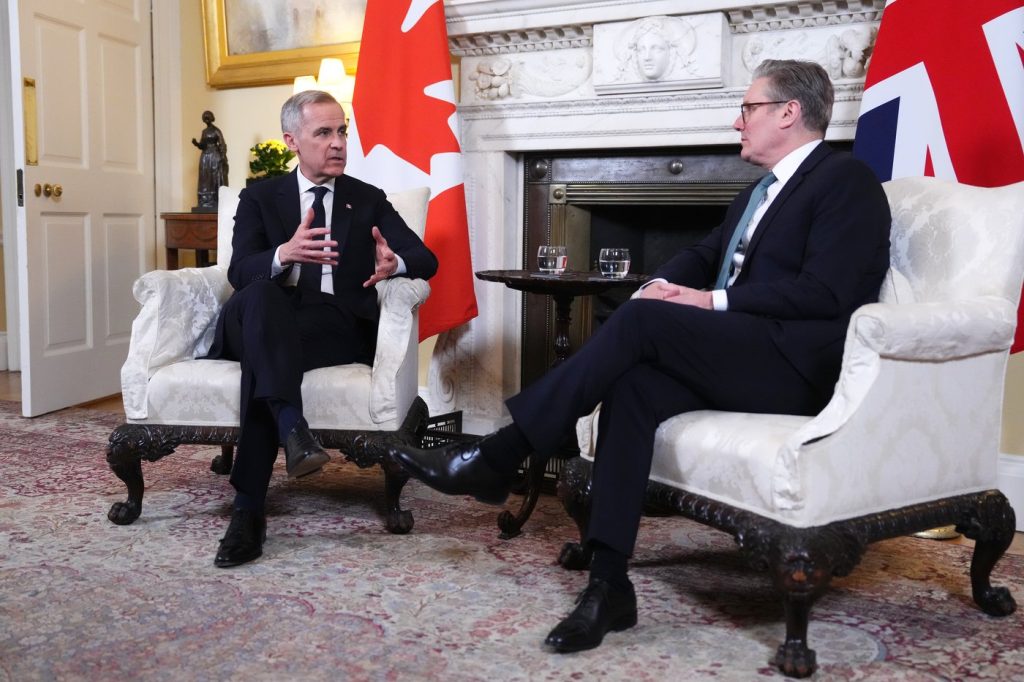Parc-Extension residents divided about proposed redesign of bike lanes

Posted July 19, 2023 4:25 pm.
Last Updated July 19, 2023 6:52 pm.
Residents of Parc-Extension are divided over plans by the city of Montreal to install redesigned bike lanes on Querbes and Ball Ave. While some are welcoming the change, others say it would have disastrous consequences.
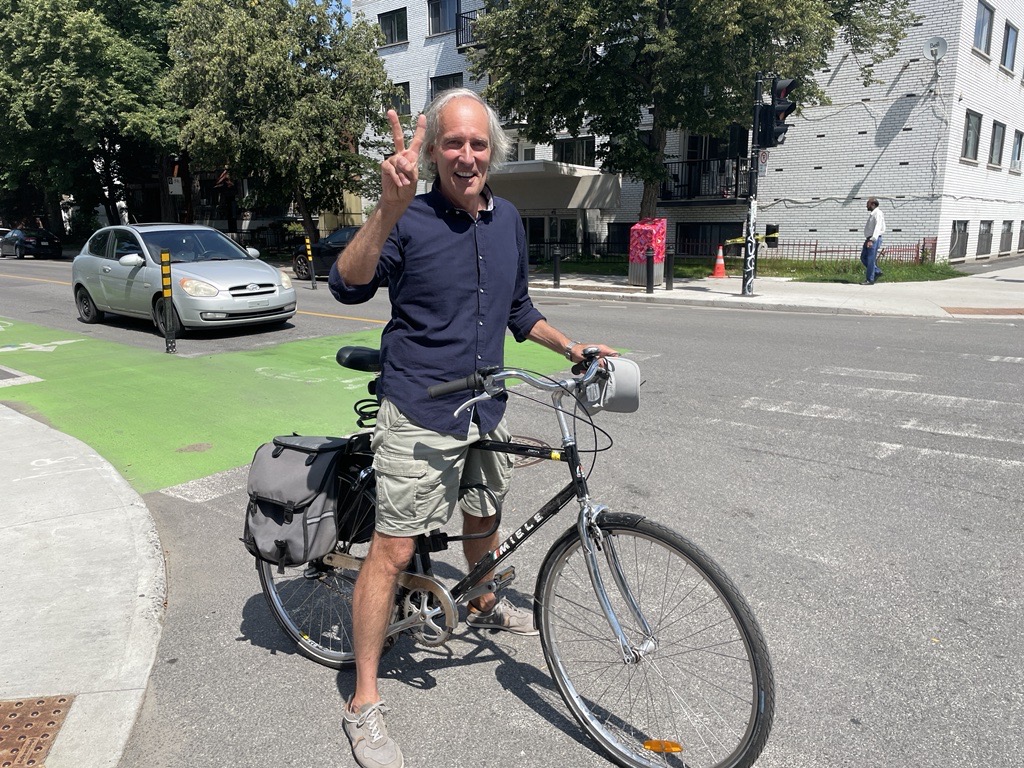
Marc Langlois, a cyclist and a resident of Parc-Extension. (Felisha Adam, CityNews Image)
“The fight is not should we have a secure bike path or not, we should have secure paths,” says Marc Langlois, a cyclist and a resident of Parc-Extension. According, to Langlois, there are currently no protected bike lanes in that part of the borough, and that this redesign would be beneficial.
“I know a lot of the family, people who are very, very happy to have those bike lanes because it will change everything for them because they are scared to go in the street with their children,” Langlois added.
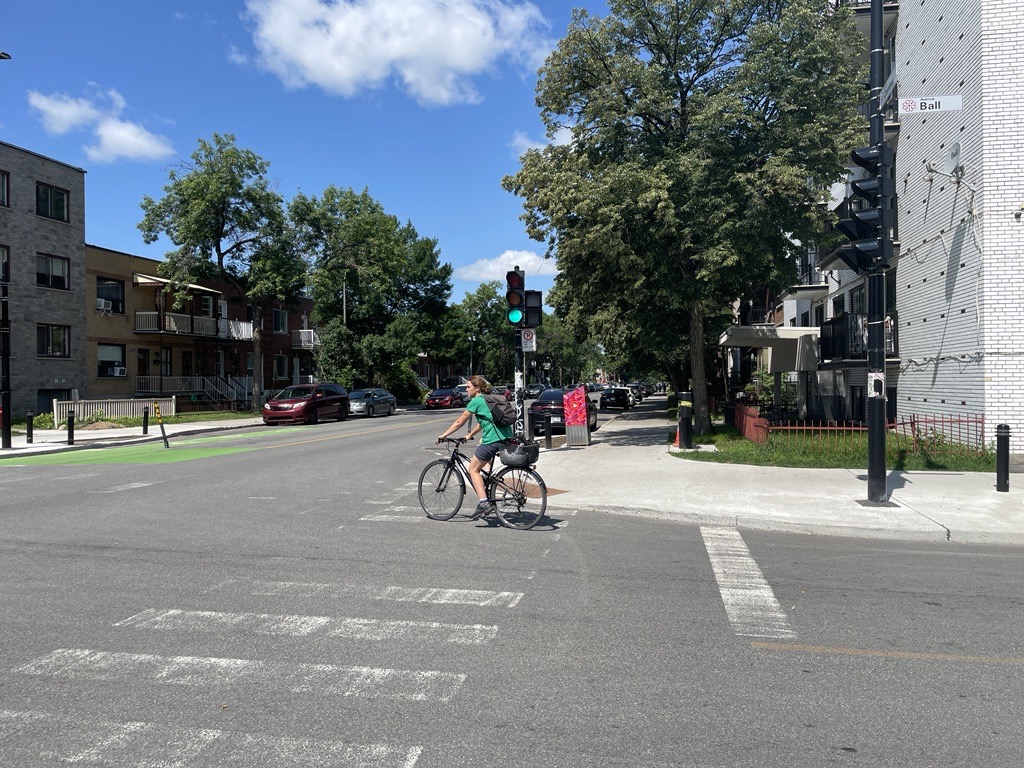
Parc-Extension Residents divided about proposed bike lanes on this street. (Felisha Adam, CityNews Image)
Bicycle lanes going in opposite directions already exist on Querbes, but the city wants to move one of the paths between the sidewalk and parked cars, and on the other side of the road the city intends on removing parking all together to make way for a second path going in the other direction.
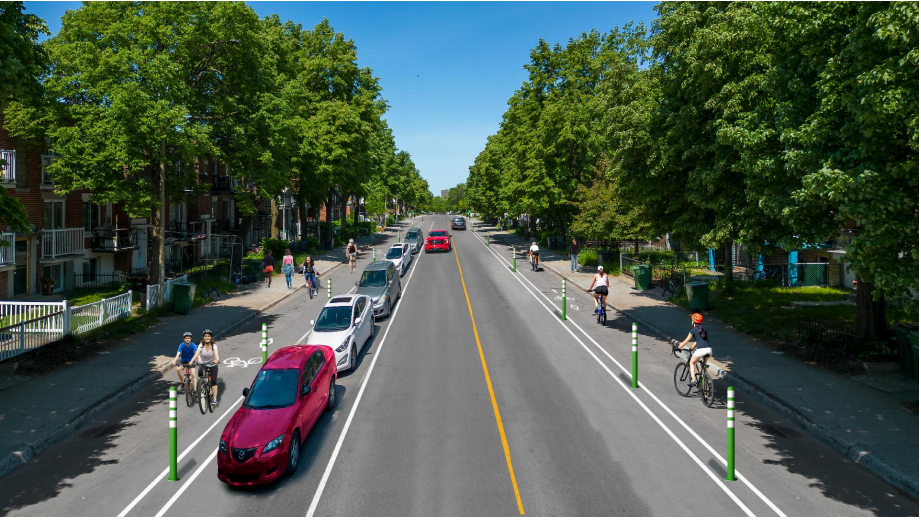
Plans for the redesign of the bike lanes on Querbes. (City of Montreal)
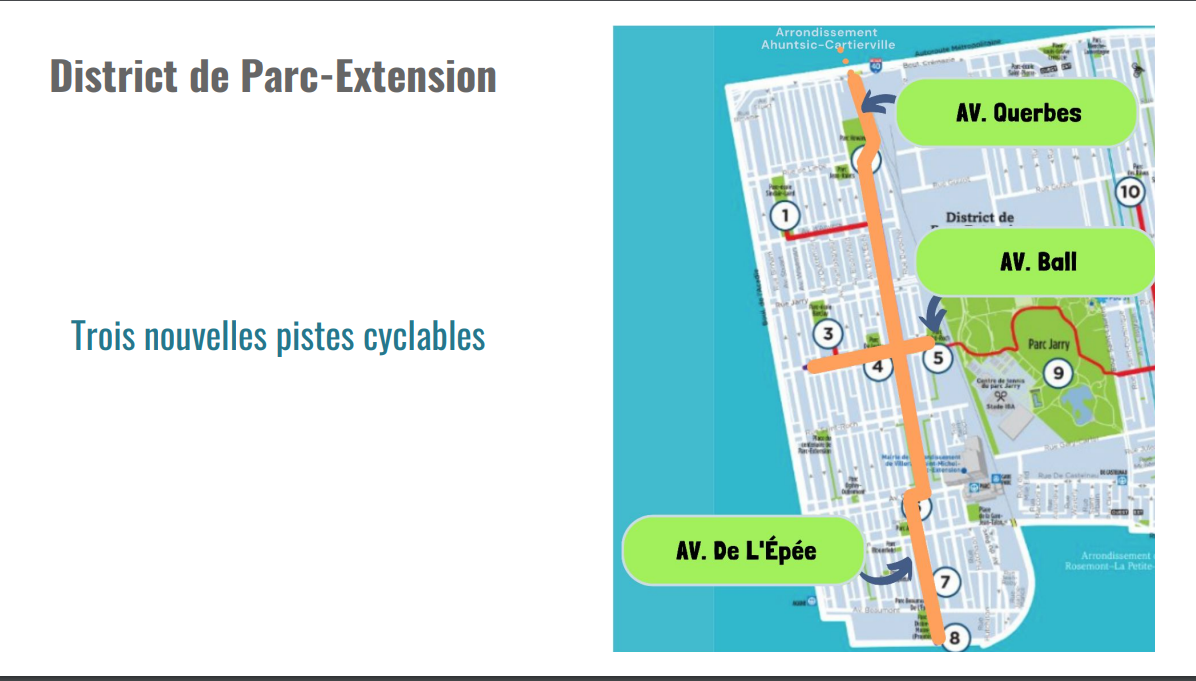
Plans for the redesign of the bike lanes on Querbes and Ball Ave. (City of Montreal)
For James Burdon, while he believes the redesign would improve the safety of cyclists on the road, the removal of 260 parking spots to make way for the paths would impact those who rely on motor vehicles.
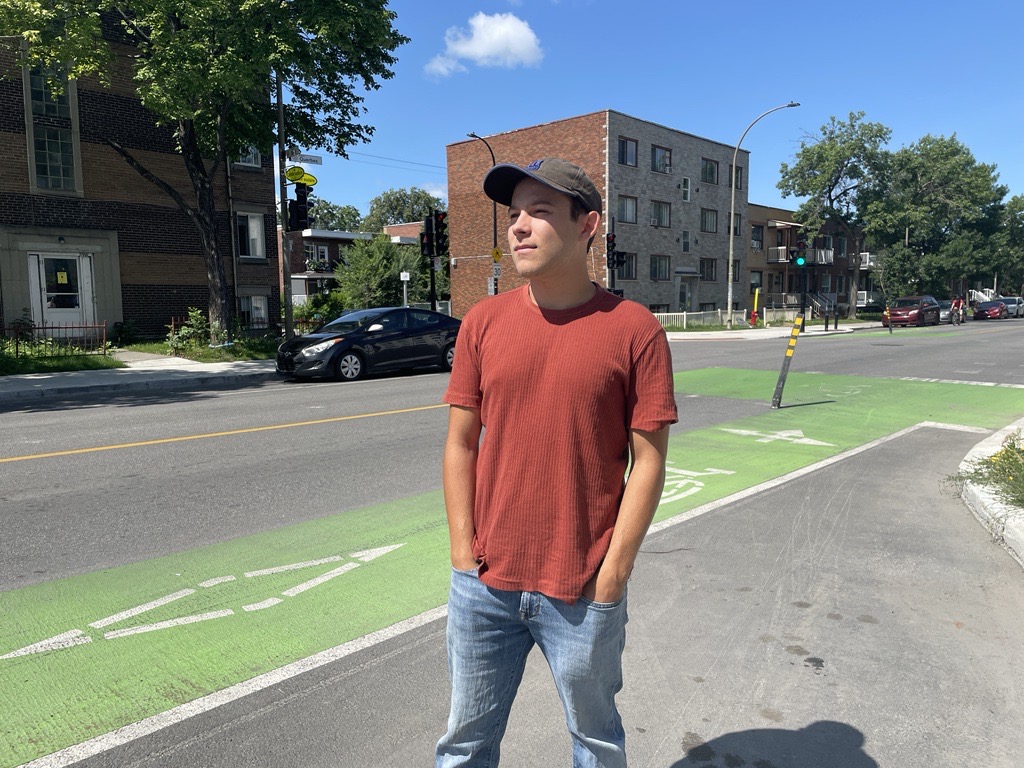
James Burdon a resident of Parc-Extension (Felisha Adam, CityNews Image)
“Querbes is pretty dangerous to bike on right now because people drive fast, and I think protected bike lanes are a good idea. I think they could have done a design where they didn’t remove so much parking because as it stands, people do need cars and Parc-Extension,” Burdon says.
“The residents haven’t had the opportunity to voice their concerns or the negative impacts, and haven’t been given any solutions,” says Sia Spanoudakis.
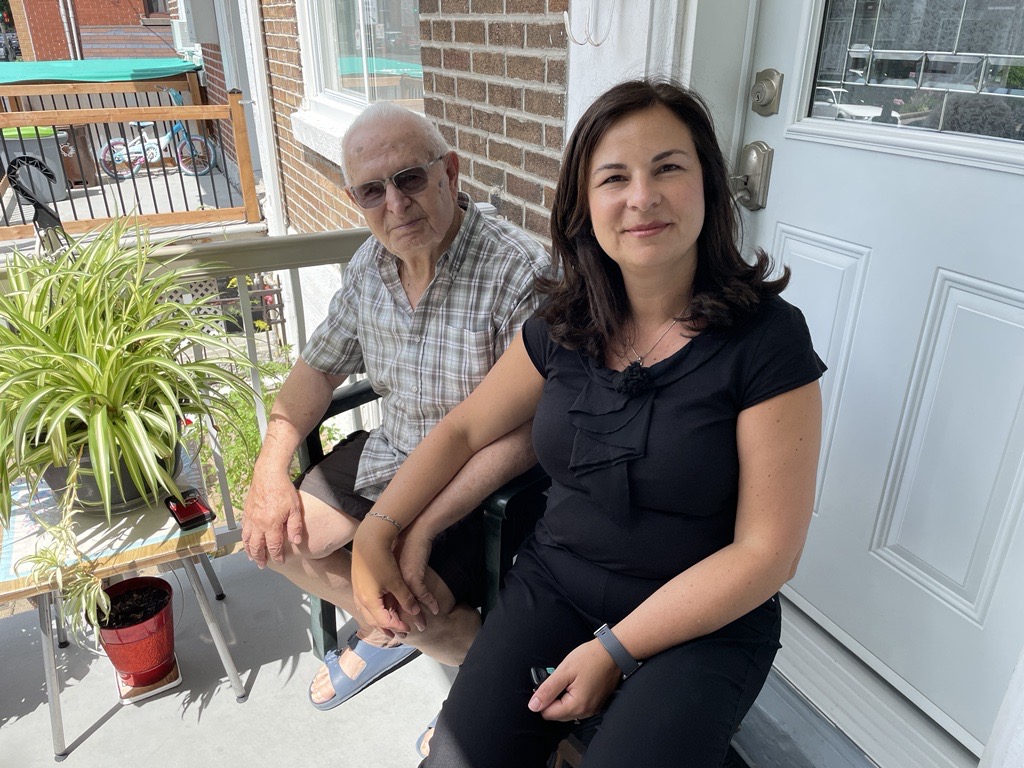
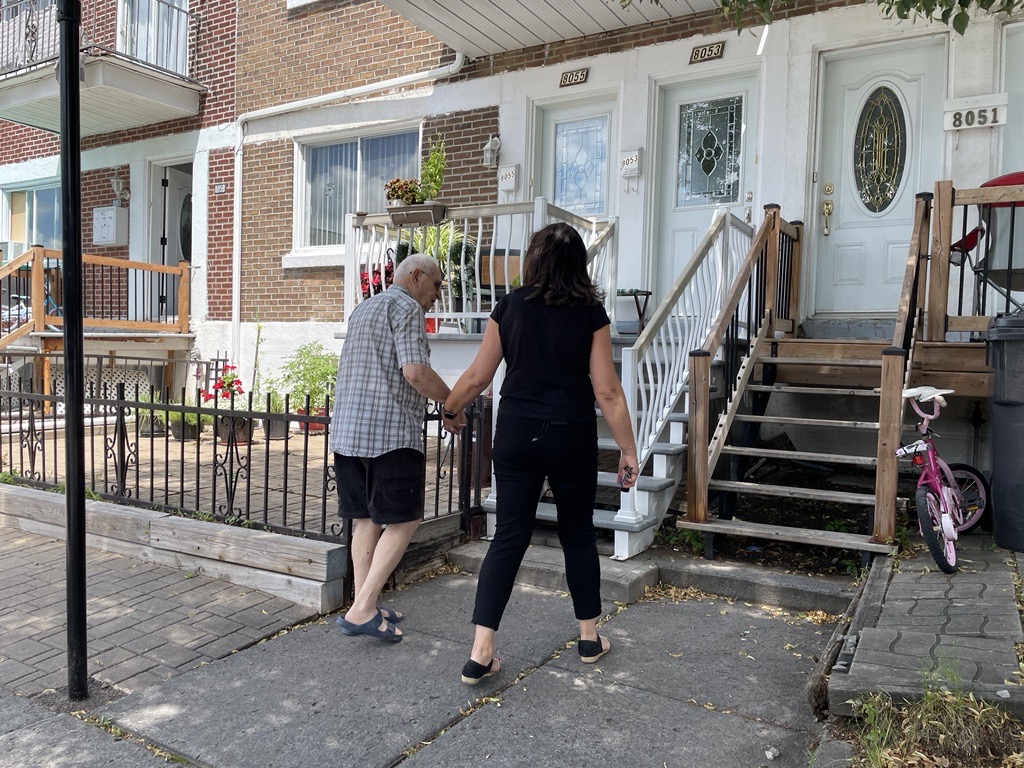

A petition was launched by community members in Parc-Extension against the proposed changes, and it’s already garnered almost 900 signatures.
“It’s not a no to the bike path. It’s no to removing the parking spots,” added Spanoudakis, who says the plan would impact seniors, who rely on vehicles for transportation, including her parents who live on Querbes. The redesign would take away a limited mobility parking spot given to them just last year.
“It’s not transparent. It is not a collaborative session. It’s not democratic to say, here is the plan. We’re going to be removing 260 parking spots. Deal with it.”
She and others in the community are asking for more transparency in the implementation of the plan.
“The residents haven’t had the opportunity to voice their concerns or the negative impacts and haven’t been given any solutions, really, that are viable…we’re asking for transparency and dialog. What is a feasibility study? What is the traffic study?” questioned Spanoudakis.
The borough of Villeray–Saint-Michel–Parc-Extension reiterated the city’s plan to redesign the bike paths, saying it would be safer for cyclists, but did not provide comment on the concerns of community members City News brought forward.
“There is minimal opportunity for discussion. Minimal information is being shared. The administration doesn’t seem to want to listen. It’s really like speaking to a brick wall when we say we have concerns because their response is, well, you know, that’s what it is,” says Spanoudakis.
